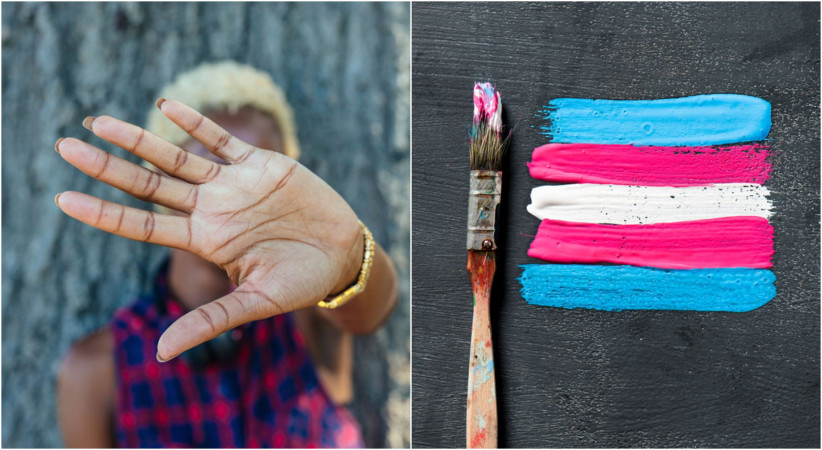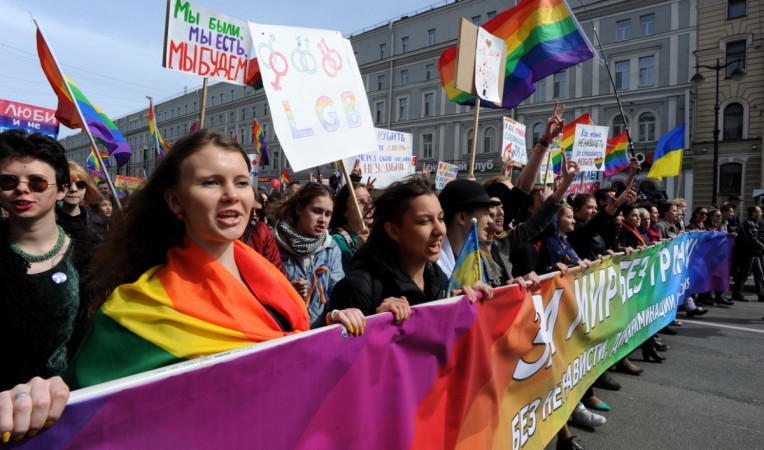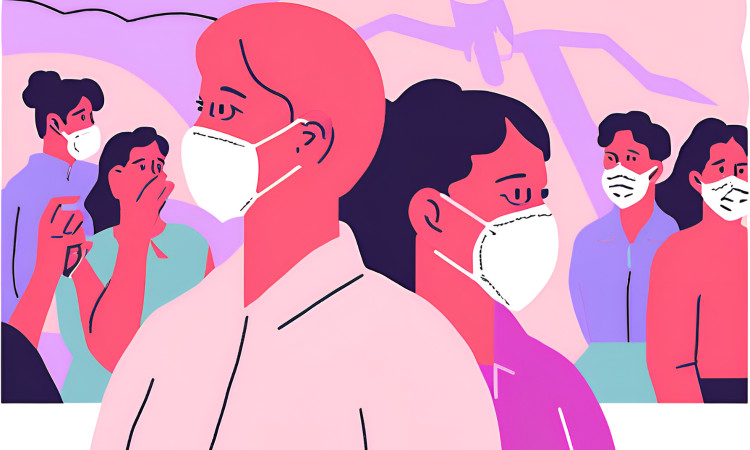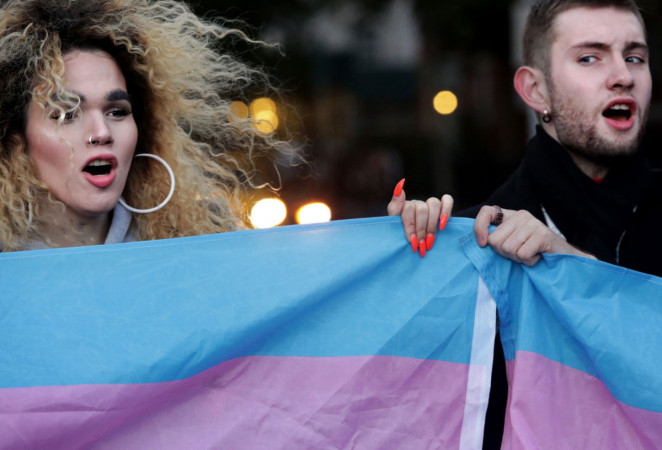Impact of the anti-LGBTQI+ bill in Georgia on queer migrants
On July 27, 2024, the Georgian Parliament passed the first reading of the "Protection of Family Values and Minors" bill and 18 related amendments to various Georgian laws.
02/Dec/24
4020
Impact of the anti-LGBTQI+ bill in Georgia on queer migrants
Author: Gulnara Mehdiyeva
On July 27, 2024, the Georgian Parliament passed the first reading of the "Protection of Family Values and Minors" bill and 18 related amendments to various Georgian laws. The anti-LGBTQI+ legislative package was supported by 78 deputies, with no votes against it. Most opposition deputies did not participate in the plenary session, as they have been boycotting the Parliament’s activities since the adoption of the “foreign agent” law.
The bill prohibits same-sex marriages and also bans the registration of relationships if one of the parties "identifies with a gender different from their biological sex." Additionally, the bill stipulates that queer individuals cannot adopt children, and medical professionals are prohibited from performing surgical and other procedures for gender transition. Violations of these provisions will result in criminal liability, including fines, a three-year ban on professional activity, or even imprisonment for three to four years.
A separate part of the amendments package concerns the dissemination of information. The promotion of transgenderness and same-sex relationships in educational institutions, in media broadcasts, and in educational curricula is prohibited. Ensuring the accessibility of such information to minors is also among the prohibitions. Public gatherings with the aim of spreading such information are banned as well.
The document does not clearly explain what is meant by "promotion." However, severe fines and criminal liability for repeated offenses are stipulated for violations of these bans.
Queer Foreigners in Georgia Before and After the Bill
Georgia is a place not only for Georgians but also for expats and people relocating from various countries to escape crises. Amid Russia’s large-scale war against Ukraine, repression against LGBTQI+s there has significantly intensified. In 2022, a new Russian law banned the dissemination of any information promoting "non-traditional sexual relations, pedophilia, or gender transition among people of all ages." On November 30, 2023, the Russian Federation’s Supreme Court declared the “international public LGBT movement” an “extremist organisation.” Consequently, many queer individuals suffering from the war and new laws sought refuge in various countries, including Georgia.
Tatyana Kalinina, a Russian queer feminist activist who has lived in Georgia for nearly two years, says that even before the anti-LGBTQI+ bill, the situation for queers was "not sweet" in Georgia. Same-sex marriages were unacceptable, and open struggles for queer rights were impossible. Recalling the brutal disruption of the Tbilisi Pride event by far-right radicals near Lisi Lake in 2023, Tatyana notes that despite this, she felt more comfortable in Georgia because the situation in Russia was worse. However, the situation became more complicated after the bill passed its first reading:
“There was an initiative group organising drag shows here. They held professional shows in Batumi and Tbilisi. This summer, they invited a very famous drag diva from the United States. An agreement was reached, and tickets were sold. But when right-wing groups found out, they began to threaten the organisers and the event itself. As a result, the organisers canceled the event and had to refund all the tickets. They suffered both material and moral damage because not only the organisers but also the entire cast was under threat. Right-wing groups had previously attacked and threatened their shows as well.”
After 2020, Belarus also became a worse place for both queers and opposition activists. Amid the tightening political climate, the number of activists migrating to Georgia and other countries increased.
Darya Parafinyuk, who has lived in Georgia for over two years, was a civic education trainer in Belarus. She is one of the founders of the "Geta Okey" media initiative, aimed at reducing the stigma against queers, and she came to Georgia due to the political situation in her country. According to Darya, the situation was already bleak before the bill. She describes how homophobic sentiments occasionally surfaced in society, with homophobic statements in the media and in daily conversations. Shortly after the bill passed its first reading, Darya recounts a personal incident:
“One evening, I entered a store. I was wearing a T-shirt I had bought at a queer conference in Tbilisi last summer. The T-shirt had a rainbow flag and the phrase ‘Love is Unstoppable’ written in Georgian. I had walked around different parts of the city in this T-shirt since then and had never felt in danger. But this time, when I left the store, two people, about 16 years old, were waiting for me. It was raining, and they had their hoods up. They started following me, trying to find out if I spoke Georgian. When I said I didn’t, they asked why I was walking around with an LGBT flag in their country. I was a bit taken aback and asked, ‘What’s the problem with that?’ They replied that this wasn’t Russia or Ukraine, that their traditions were different, and that I should take off the T-shirt. I laughed and asked if I should walk around naked. They said they were advising me for my own good, that I could even be beaten for something like that. I asked, ‘Could someone really beat me for this?’ They said yes. This surprised me a lot because I always wear LGBTQ+ symbols—rainbow-colored socks, pins on my bag, scarves, etc. It was very stressful to face such a threat for the first time.”
Darya says that she interprets this bill as a license for violence against queers. “It seems that, unlike before, the state is withdrawing its responsibility for violence and legalising it. This saddens me a lot. Another country I love and live in is descending into totalitarian beliefs, and stagnation is happening in society.”
Könül (name changed), a young queer Azerbaijani woman who came to Georgia for work and has been in Tbilisi for a year, shares similar thoughts about the situation before the bill. She highlights issues of openness and safety, the marginalisation of queers by the majority of society, and the risk of discrimination and even violence. She notes that public spaces like Marjanishvili Square in Tbilisi are among the places targeted by homophobic groups. Azerbaijanis and Turks mainly live in these areas. Könül believes that the more radical elements of Georgian society seem to be concentrated in these areas, forcing queers to hide their identities.
Azerbaijan has ranked last in ILGA Europe’s Rainbow Index for 10 years, making it the worst country for queers in the South Caucasus and among 49 European countries. However, Könül says that although Georgians are considered more liberal and modern compared to Azerbaijan, devout religious groups dominate, and contrary to what people think, queers face significant pressure here as well. She knows Georgians who struggle to find work, face discrimination, or lose their jobs because they are queer.
“One of the main issues is homophobic violence. Unfortunately, this is not a rare occurrence in Georgia. The 2013 attack on an LGBTQ+ march in Tbilisi by thousands of people shows how widespread and organised this violence can be. March participants were attacked with stones and sticks, and the police did not provide adequate protection. Incidents like this have increased the fear of self-expression in public among queers.”
After the bill passed its first reading, Könül says she felt deep anxiety and despair. She worries that the queer spaces and cafes she visits could also become dangerous. She now has to consider additional security measures in her life. Könül predicts that after the ban on gender adaptation processes, trans people could become even more marginalised.
Plans After the Bill
Könül is not yet seriously considering moving to another country but mentions that some of her queer friends are thinking about it.
“Leaving here is not as simple as it seems. Especially considering returning to Azerbaijan, where the situation for queers is so difficult, one feels trapped. But staying here is becoming increasingly dangerous. If this law is passed, I’m not sure my life and identity will be protected in this country. You can stay and fight, but I don’t know how long that can last under these conditions.”
But Tatyana Kalinina has some hopes. She says that if we look at Russia, we can see that many laws have been passed, but not all of them are enforced. Even if they are enforced, it may not be as expected.
“For example, Russia's ‘foreign agent’ law initially didn’t have much impact, but when the government wanted to eliminate its opponents, it began to use the law actively. That’s why my colleagues and I are waiting for the parliamentary elections in Georgia this fall. Because there is democracy here, and opposition parties can influence political life. If the opposition wins, this bill may not be passed in the end. But if it is, we will need to see how it is implemented,” Tatyana believes.
“For me, the idea of queerness is transnational. Like the feminist movement, LGBTQ+ rights are borderless. So we need to help each other. This bill comes from Russia and is very similar to the one there. Since I’ve seen how it works in Russia, I’m ready to share the strategies we used to fight back.”
Darya says that even after the bill and the incident she experienced, she will continue to wear rainbow symbols.
“For me, this is a form of resistance to the regime. It was like that in Belarus, and it’s like that here. Symbols are important to me; they represent the values I hold, and by wearing them, I show others that something can still be done. I also send the message to people that they are not alone in this situation.”
Powered by Froala Editor



